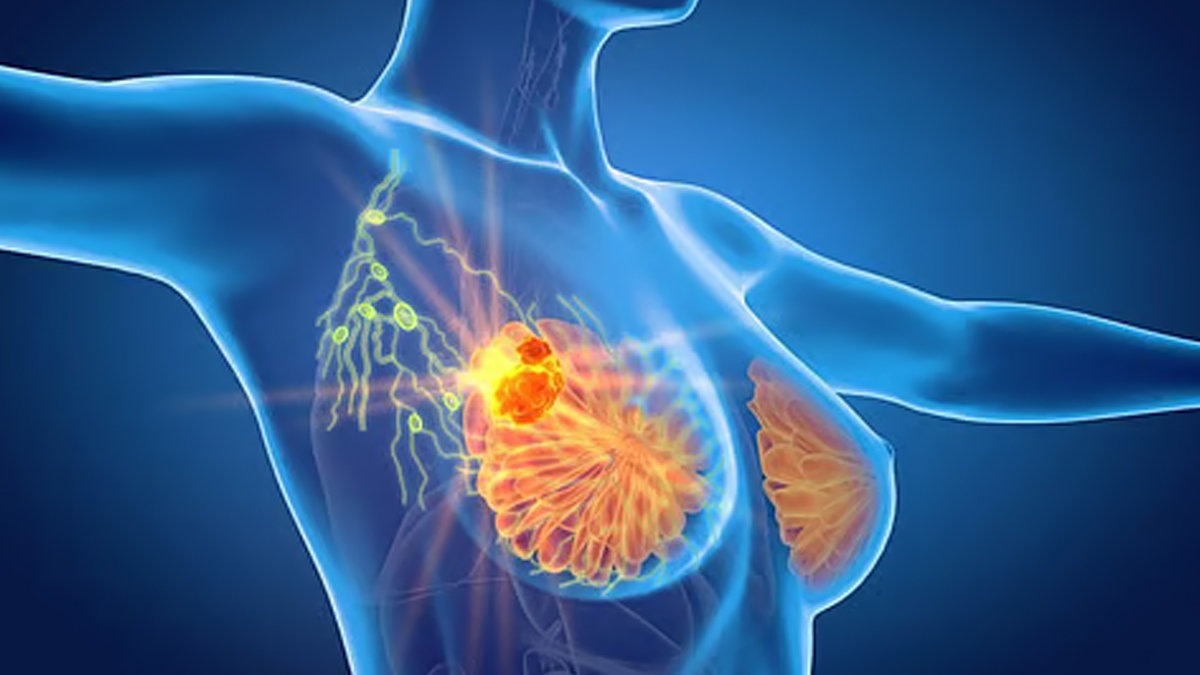
Breast cancer continues to be one of the biggest health concerns across the world. Each year, thousands of women are diagnosed, and while treatments have improved, the disease can still turn deadly when it spreads to other parts of the body. In fact, secondary or metastatic breast cancer remains the main reason behind breast cancer deaths. Now, scientists in the UK have made a discovery that may open a new door in preventing this spread. Their findings could change the way doctors tackle breast cancer in the future.
Table of Content:-
To know more about the study, we reached out to Dr M A Raja, Director and Senior Consultant, Medical Oncology, MGM Cancer Institute, Chennai, who shared his expert opinion.
What the UK Study Found![3 - 2025-09-24T133454.690]()
Researchers from the Cancer Research UK Scotland Institute at the University of Glasgow have found that breast cancer can change how certain immune cells work. This change leads to the release of a molecule called uracil.
According to the study, it is normally an important part of cell function, but in this case, it was seen helping distant organs create a kind of “scaffold.” This scaffold makes it easier for cancer cells to grow in new places.
By focusing on this process, the scientists discovered that if they block an enzyme called uridine phosphorylase-1 (UPP1), which produces uracil, they can stop this scaffold from forming. In tests on mice, blocking UPP1 not only prevented the spread of cancer but also restored the immune system’s ability to fight cancer cells effectively.
ALSO READ: Cervical Cancer Survivors Face Nearly Double the Risk of Anal Cancer, New Study Warns
Why This Matters![2 - 2025-09-24T133451.934]()
The study, published in EMBO Reports, highlights a critical “window”, the period before cancer spreads. Detecting metabolic changes like uracil levels in the blood could alert doctors early. Study lead Dr Cassie Clarke explained, “This study represents a major shift in how we think about preventing the spread of breast cancer. By targeting these metabolic changes as early as possible, we could stop the cancer progressing and save lives.”
Our expert, Dr MA Raja also adds, "understanding cancer biology and developing treatment is a very complex process. In the article published in the UK they are referring specifically to a molecule called uracil which normally is part of the building block of RNA which forms a very important component of cell function in terms of synthesising proteins and carrying messages." He further adds that however the data so far suggests that they have only tried it on animals and there's a long way to go to see how useful it turns out to be in clinical application.
"I would suspect that we would have to wait at least one or two years before actually translating this to some meaningful clinical information. Like all new developments all oncologists would look forward to any new modalities of understanding and treating cancer," added Dr Raja.
This approach focuses not on the primary tumour but on stopping secondary growths. Since metastasis is what makes breast cancer harder to treat, this could be a game-changer.
The Bigger Picture
Every year in the UK, about 56,800 people are diagnosed with breast cancer, and sadly, around 11,300 lose their lives. Thanks to research, survival rates have improved, but once cancer spreads, treatments are far less effective.
Dr Catherine Elliott, Director of Research at Cancer Research UK, said, “Discoveries in cancer research have made huge strides in making breast cancer a far more treatable disease than ever before. However, metastasis is a major factor in breast cancer becoming harder to treat, especially if the cancer returns months or even many years later.” She also added that this discovery offers new hope for stopping metastasis early.
Future Possibilities![1 - 2025-09-24T133453.271]()
The research team, led by Prof. Jim Norman and Prof. Karen Blyth, is now exploring how UPP1 changes immune cell behaviour. They are also testing drugs that could block immune cell metabolism as a way to stop cancer from developing or spreading.
Simon Vincent, Chief Scientific Officer at Breast Cancer Now, commented, “This is an exciting piece of joint research that expands our understanding of how secondary breast cancer develops. In mice, targeting the UPP1 protein before secondary breast cancer developed led to fewer secondary breast tumours and a boosted immune response in the lungs.” He stressed that further studies are needed to see if this could work in humans, but the findings offer real hope for the future.
ALSO READ: Can Training Slow Cancer Growth? What the Latest Study Found
Conclusion
The discovery that blocking a single enzyme could stop breast cancer from spreading is a promising step forward. While more research is needed, this approach could one day provide doctors with powerful tools to detect, prevent, and manage metastatic breast cancer more effectively. For patients and families, it represents renewed hope that science is steadily moving towards saving more lives.
Also watch this video
How we keep this article up to date:
We work with experts and keep a close eye on the latest in health and wellness. Whenever there is a new research or helpful information, we update our articles with accurate and useful advice.
Current Version
Sep 24, 2025 17:36 IST
Modified By : Vivek KumarSep 24, 2025 17:36 IST
Modified By : Vivek KumarSep 24, 2025 17:36 IST
Published By : Vivek Kumar



